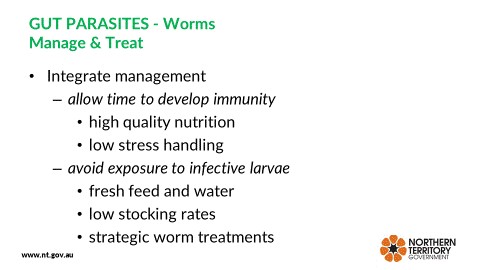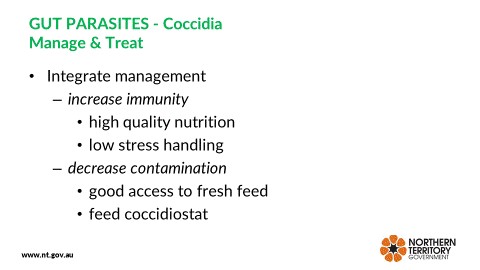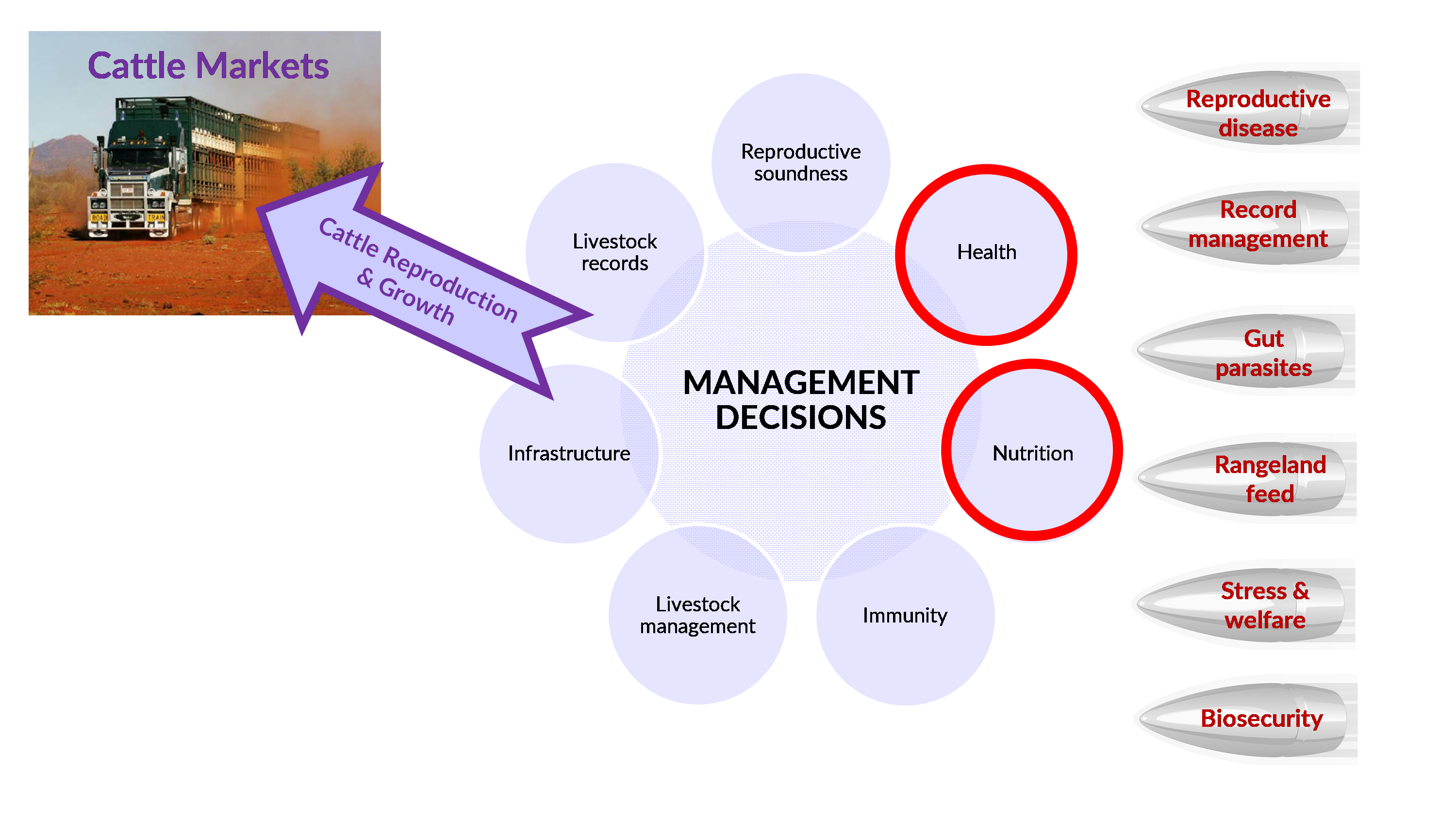Recent insights on cattle gut parasites
Jocelyn Coventry, Pastoral Production Officer
Department of Primary Industry and Resources – Alice Springs
Background
Towards the end of last year, August 2017, an animal health day was organised by Landmark – Alice Springs. The day featured speakers presenting over a range of issues for cattle management decisions in pastoral businesses of Central Australia. Figure 1 was presented to attendees to illustrate the complex relationships and why integrated management would be required to address these. For example, cattle health and nutrition are key issues that are negatively affected by cattle gut parasites (intestinal worms and coccidia), however, good cattle health and nutrition are also critical for development of immunity to limit those negative effects.
Records from management of DPIR cattle on AZRI and Old Man Plains Research Station, south of Alice Springs, provides insight into how integrated cattle management activities can limit gut parasites and their negative effects—particularly during routine yard-weaning and in the critical post-weaning period. This will have application to many pastoral properties in the region.
Faecal tests involving counts of intestinal worm eggs and coccidia oocytes per gram of cattle faeces have been used to indicate the presence of infestations. Cattle management associated with nil or low infestations has featured the following:
- Biosecurity: Exclusion of last year’s calves (this year’s yearlings) from breeder cow paddocks helps to limit infestation of the next calf-crop;
- Good feeding: Feeding of weaner pellets that contain coccidiostat and protein, together with provision of good quality hay and clean water, supports the health, nutrition and development of immunity in recently-weaned calves;
- Good handling: Handling of recently-weaned calves with low stress weaner training helps create a settled, easily-managed group and supports development of their immunity against endemic disease, such as coccidiosis.
Records from the Bureau of Meteorology and OMP also show how seasonal conditions and paddock factors can amplify the risk of intestinal worm disease. Winter of 2016 had a mild start in June with over 25 mm of monthly rainfall and daily temperatures that did not drop below 00C. This prolonged survival and migration of infective worm larvae, out of cattle faecal pats and up the blades of wet pasture grass. From here the larvae are ingested by grazing cattle and thus increase the herd level of intestinal worm infestation. Over 100 mm of monthly rainfall and fresh growth of grass in early summer of 2016-17 further promoted the cycle of infestation. This was consistent with the high faecal worm egg counts in pre-weaned calves early 2017 (up to 1,840 worm eggs per gram of cattle faeces). On account of these findings, all calves were treated with a broad spectrum anthelmintic during yard weaning, and then released onto fresh feed in the weaning paddock.
Recommendations
Records from DPIR Alice Springs cattle support recommendations for reduction of the post-weaning risks posed by intestinal worm infestations (Figure 2) and coccidia (Figure 3).
 |  |
| Figure 2. Recommended worm control | Figure 3. Recommended coccidia control |
In general, cattle producers are encouraged to confirm the cause of any disease or production loss in their cattle. This can be assisted by faecal testing, firstly to confirm if parasite infestation is an issue, and secondly to help plan strategic treatments. Advice on this is available through regional DPIR offices. It is essential to have a plan for any required treatment of severe clinical gut parasite infestations and, especially for young cattle, a plan that makes good use of the efficiencies achieved with integration of optimal livestock management, infrastructure, nutrition, and immunity.
For more information about these insights, please contact Jocelyn Coventry 08 8951 8142.
Give feedback about this page.
Share this page:
URL copied!
